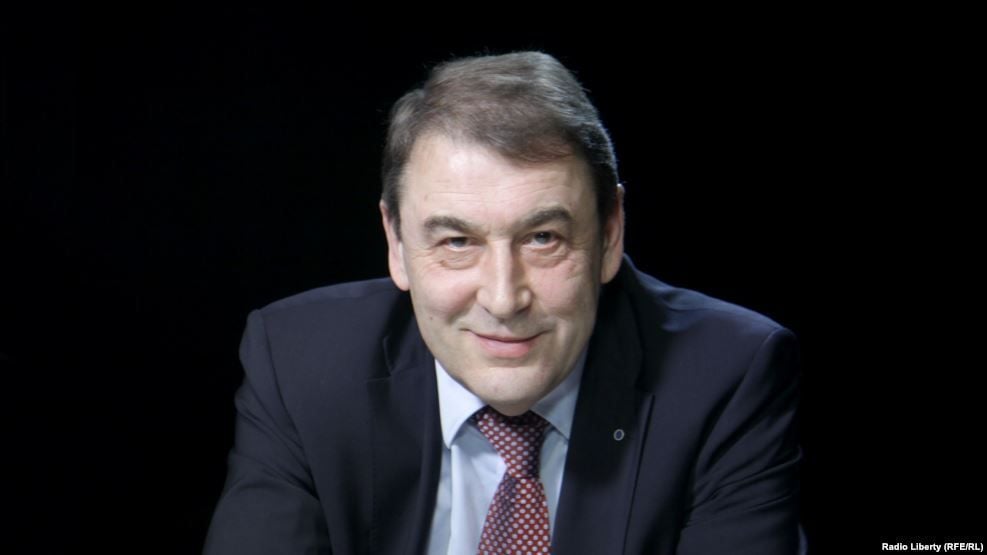
Russia’s ex-Minister of Economy: Putin has given up on "Novorossiya" project
Former minister of economy of the Russian Federation has told in an interview with UNIAN, how much the economy of the Russian Federation is affected by sanctions and Russia’s retaliatory countermeasures, about Donbas as a "suitcase without a handle" and the feasibility of abolishing the so-called “Crimean Federal District”.
Andrey Nechayev - a renowned Russian scientist and economist, ex-president of the bank Russian Financial Corporation, the Minister of Economy of the Russian Federation in 1992-1993, and now the leader of the party called Civil Initiative. Nechayev was one of the first ones in Russia to speak of a disappointing outlook on the future of the country’s economy, in particular, the imminent depletion of financial reserves caused by the Kremlin’s unreasonable economic policies and international sanctions.
Could you explain, why the words "Liberal" and "national traitor" have become synonyms in Russia? And why is a public debate, especially on TV, is now continuing solely between supporters of the Russian president?
Today’s Russian politics is very far from being liberal, but it’s the Liberals who are, supposedly, to blame for everything. This is pure propaganda, of course. We see serious failures in the social sphere, economic policy in general and in the public administration system, which has become a byword - even at the very high rostrums, they speak about the need to reform it. Although, the authorities don’t want to admit that the model of development and management, which was selected in mid-2000’s, is in a dead-end now. Therefore, we must find the enemies, who are to blame for the fact that the country over the past six years, has been undergoing a second major economic crisis. And these enemies have been appointed.
On the one hand, it is our Western partners, led by the U.S., but on the other hand, it was necessary to find internal enemies. They were either found, or rather invented, and labeled "liberals." Although the people, who are very far from such views, also fall in this group. Almost every state-run media flash on every occasion possible, giving it a negative tinge. Perhaps, the only categories the Liberals are not equated to is pedophiles and thieves-in-law. We must admit – I must take my hat off – that our propaganda is working very skillfully and effectively, and people fall for this trick. The devil’s talent, indeed. The number of loyal supporters of the president, who consider him absolutely sinless, is really great. The situation in society is changing, but we should look at things fairly: undoubtedly, Putin is a popular politician and a very talented propaganda mastermind.
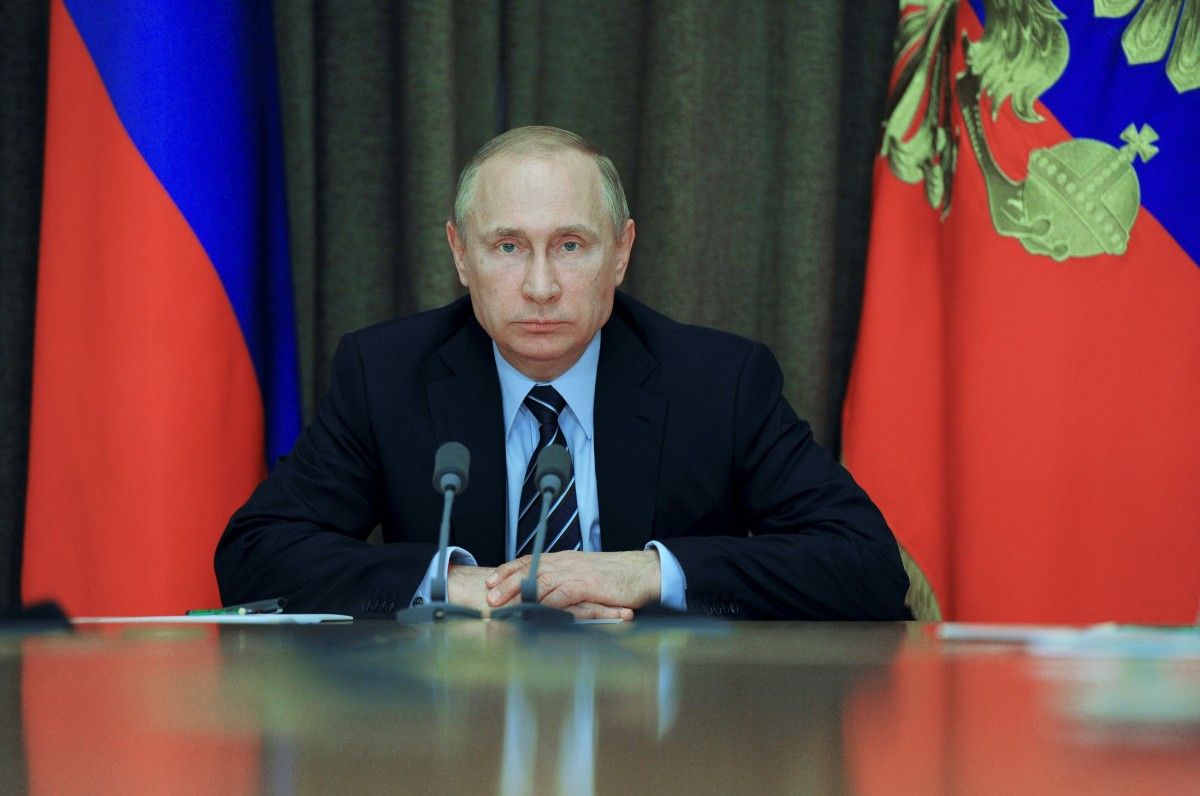
In any unpleasant situation, the authorities manage to translate it onto the internal and external enemies, or at worst, onto the Russian Government (not the government in general, but its economic bloc exclusively, because it is occupied by the Liberals, and it’s they who are to blame. People believe in this.
Why do they believe in this?
In a sense, it is inherent to the Russian mentality: the czar is good, but it’s the boyars [state officials] who are bad. It has always repeated with each czar in power until he was overthrown, and then it repeated later with Stalin. People believed that was unaware of repression and other outrageous things, and that this information just needed to be channeled to him, as his entourage kept him oblivious. Then Khrushchev tried to dispel it, and the subsequent general secretaries [of the Central Committee of the Communist Party] played the same role, with varying success. This is a result of the Russian under-democracy.
The period of democratic development in Russia, in general, throughout its history, was microscopically short - between the time following the February’s bourgeois revolution in 1917 and the October revolution of the same year. Later, it was only Gorbachev's reform and the first half of the 1990s. Democracy has not taken root here.
In Russia, many people are talking about the systemic economic crisis, which only deepened with the fall in oil prices and international sanctions. Does this mean that after some time, countries such as Ukraine will be able to breathe freely, because Russia will have to deal with its internal affairs?
I take no decisions on economic policy and neither do I take them on the Ukrainian issue. I am a humble member of the Expert Council under the Russian Government, although I personally know most of the people who take economic decisions. I have told the Russian media hundreds of times that we have a systemic economic crisis. However, some Western and Ukrainian newsmakers wanted to say that it’s the sanctions that led to the crisis, it is not so. It's funny how this tool is very actively used, and in a very strange way, by some Ukrainian politicians and Russian propaganda as well – they both exaggerate the significance of sanctions. Our troubles are not their result, our trouble is a systemic economic crisis.
The slowdown, and then the drop of the main macroeconomic indicators began in 2012 – long before Crimea, the worsening of the geopolitical situation and the drop in oil prices. The price of $100 a barrel was comfortable for Russia, the negotiations with the EU on a visa-free space and humanitarian cooperation were advancing at a fine pace. No one could even think about sanctions back then. The environment was fine but the economy began to nosedive. The sanctions and falling oil prices have exacerbated the situation, but they were not the primary cause.
With regard to the exhaustion of reserves, there are different estimates. The median estimate is that if everything remains as it is now, this will happen somewhere in the second half of 2017. But this is actually a challenge for the budget. A much deeper question is on the agenda: which path will the Russian authorities choose? In the issue of economic and social policy, Russia is at the crossroads today. One option is a crackdown, even greater nationalization of the economy, a bid on state-owned companies, increasing taxes on private business. The second option is the liberalization of the economy, creation of a favorable business climate, conditions for the Russian capital to be invested within Russia, and so on.
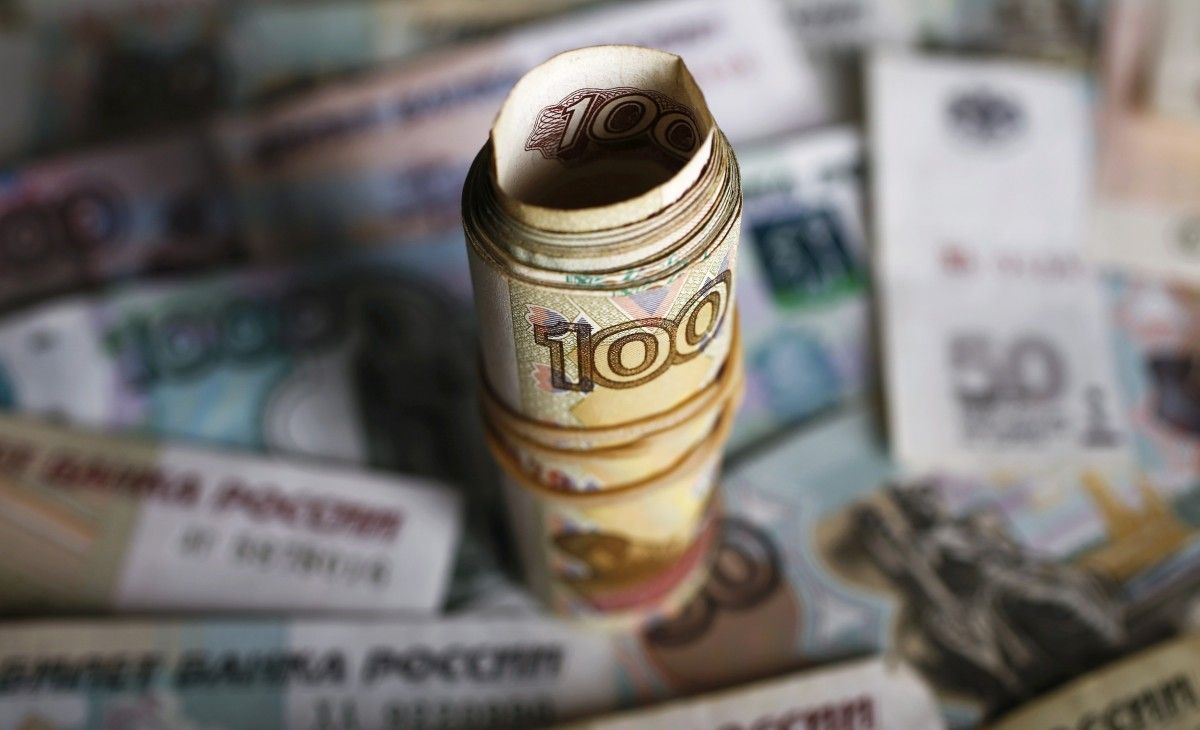
The president understands it, but he has no ready-made solution, and visually, it is manifested in rather weird preparatory steps. He first resumes operations of the Economic Council and creates a working group headed by Kudrin, who is a supporter of the second option. After a short time, another working group is created, headed by the ideologists of the first approach, supplemented by the ideas of the managed money issue. That is, it is proposed to pump the economy with money, try to stimulate economic growth with its help and solve budgetary problems. Obviously, it’s swinging from side to side.
So, can the economic difficulties in Russia change your country's policy toward Ukraine?
The mentioned budget problems alone, related to the exhaustion of the reserve fund and the National Welfare Fund, have no direct relation to Ukraine. Of course, there is some assistance to Donbas, but it is negligible on the scale of Russia's budget. From an economic perspective, these problems will not be solved if the tap of assistance to Donbas is closed. Of course, no one will name the specific amount [of aid], it goes through different departments. But this figure is not dramatically important to Russia.
It would be another story though if the first option for the development of the social and economic policy is chosen, and to further tighten the screws, the Russian society will have to be kept in constant anxiety - this requires that the conflict in Ukraine continue. This is a rich soil for propaganda. If it so happens that the Kremlin goes for the second option, this will also include both the restoration of relations with the West and the struggle for the lifting of sanctions. Then, the situation in eastern Ukraine will probably change as well.
I think that in any case, critical and hostile attitude toward the current Ukrainian leadership will remain.
In Ukraine, some people believe that if they wait a little more, Russia will itself collapse under the weight of internal problems... And Ukraine will live a better life...
This is nonsense. Russia will not fall apart. As a man who back in the days, along with a group of colleagues, had to manage a really collapsed economy following the collapse of the country, I envy the current government with their problems. Back then, it was about a threat of chaos, hunger and a threat of civil war, the survival or collapse of Russia. Now, these risks are a thousand times smaller.
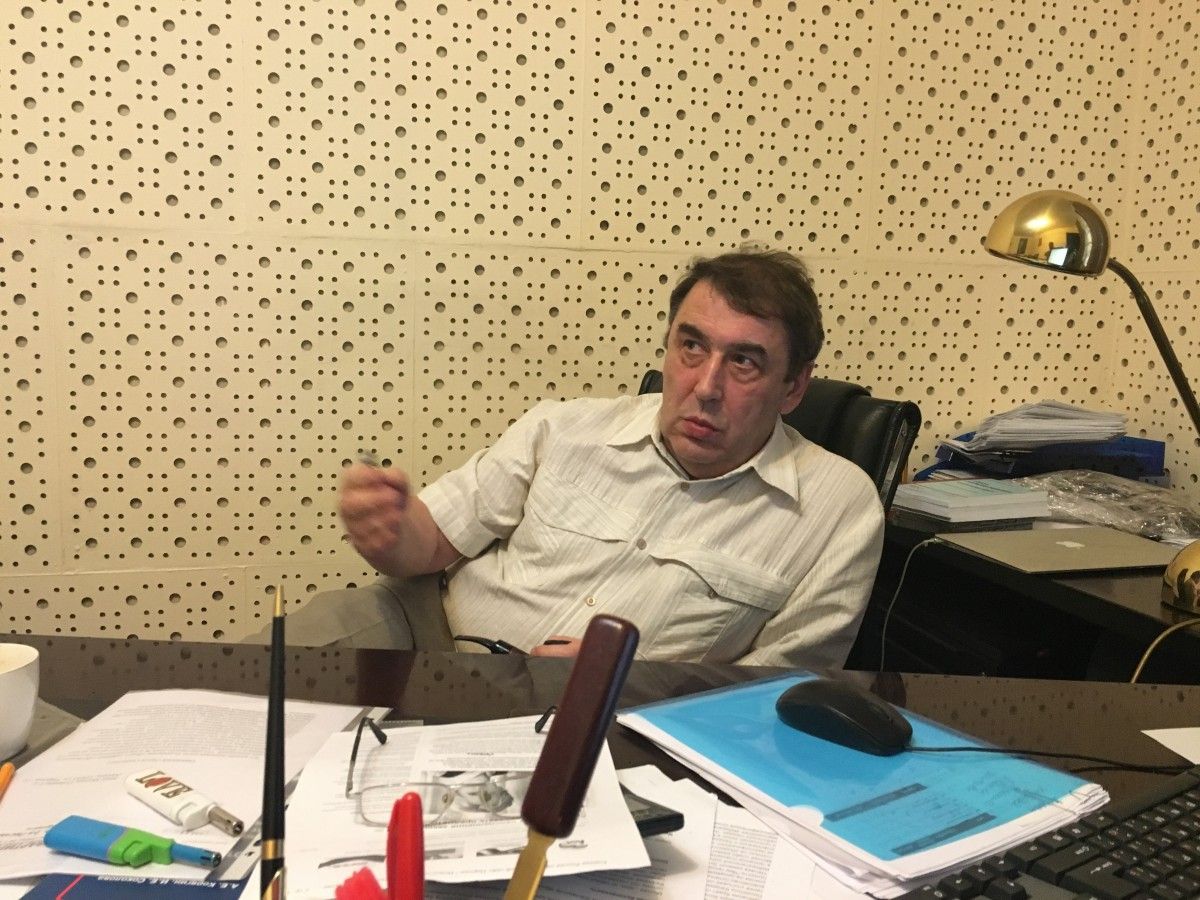
As for Ukraine, it all depends on your internal policies and the patience of Western powers to provide financial support to you, which is by no means guaranteed. In any case, the question remains: who will pay for the restoration of Donbas?
Whoever controls it. At the moment, it’s Russia...
As I see it, Putin has given up on the “Novorossiya” project. He still needs it in order to have a trump card (in his understanding) for diplomatic bargaining with the West. He needs levers that will keep Ukraine in suspense, but obviously, the idea of these areas joining Russia or some kind of an independent state, friendly to Russia, being created, has been buried, in my opinion. Now it’s about how to give Donbas to Ukraine at the highest price possible, while the bargaining is going on with the West. I've seen different estimates, but no one has any doubt that a lot of money is needed for the restoration of Donbas and particularly Luhansk, and I don’t believe that the Ukrainian economy is able to handle it. Although, according to some sources, the situation is ambiguous: The network of housing and utility services has been destroyed hopelessly, while the oligarchs have managed to save their enterprises, through financially motivating the combatants. Therefore, the production base has suffered little. But to restore public utilities and infrastructure is also an expensive venture. Today, Donbas is like a suitcase without a handle, in a broader sense.
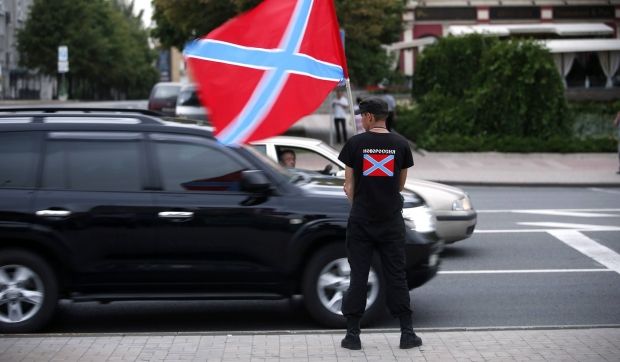
Quite a while ago, I took part in a debate aired on TV, where the opponents were the leaders from parts of Donbas beyond the Ukrainian government control - the advocates of "Novorossiya". I remember asking them: "What is “Novorossiya” now (rather than historically)?" No one could answer this question. It’s not because they were shy but because there was no understanding at the highest level of what it actually is and where it ends – whether it is a land corridor to Crimea, or it is [the territory] from Odesa to Kharkiv.
In many ways, our leadership was simply swimming with the current. We must face the truth: in Donetsk and Luhansk regions, there were protests that began not because Girkin’s squad came in. Much has happened because of the not very clever policy of the Ukrainian leadership. Apparently, in Moscow, they believed that the same sentiment will prevail in other Ukrainian regions, where the pro-Russian rallies took place, although they were not as widespread. Part of the population of these regions really associated themselves more with Russia than with Ukraine. By the way, that’s how the citizens living in Crimea did. And that’s an absolute fact. I'm not talking about international law here, but purely about the attitudes of the citizens. Apparently, there was this idea that this wave will roll on. It hasn’t.
Can the cost of Crimea and Donbas to Russia be calculated?
One can do a scientific research and try to calculate, how much money it was actually worth. I would not want to call specific figures. It's all so confused and intertwined. For example, from the point of view of the Russian consumer market, Russian anti-sanctions played a much more negative role than sanctions against Russia. They could have been avoided. This was a purely political decision, plus the desire to give impetus to import substitution.
In general, the result of the extremely negative. The relationship with the nearest neighbor and, of course, with the brotherly people - I say this without any pathos – is spoiled for decades to come. The relations with the West are spoiled for an unknown period. This is a fact. But the question is, what perspective should be chosen to look at this situation in general. Of course, there has been a consolidation of the Russian society around the "krymnash" [“Crimea is ours!”] and around the confrontation with the West, so familiar to the larger part of the Soviet people.
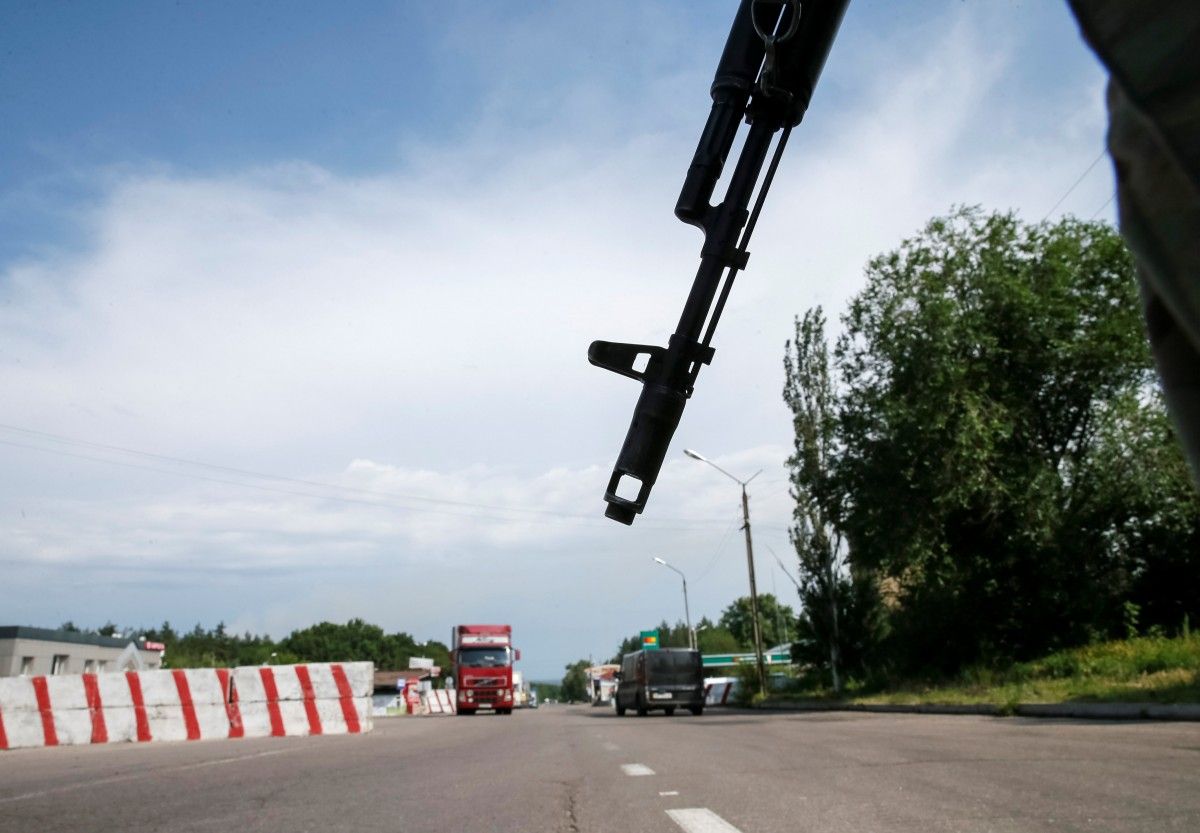
The Russians are back in the ideological atmosphere, familiar to many. We are here, and the enemy is over there. Now, the enemy has a face of [the U.S. President Barack] Obama, tomorrow it will be someone else. For several decades we have been waging this Cold - and sometimes hot – war with the Americans. I’m not sure, but it’s 86%, 72% or 93%, the large part [of the Russians] sincerely believe that America is our worst enemy.
I am meeting with voters these days, and this issue comes up. Russians sincerely believe that we are now getting up from our knees, we are surrounded by enemies, who want to destroy us, ruin us, and so on. The seeds of propaganda fell on fertile soil. Putin's personal ratings have leapt up. I would be cautious when calling the figures, since it is necessary to understand the historical memory of the Russian people. See, when you are asked in a phone survey, whether you approve of your president's actions, not everyone will dare to say that they don’t. But, nevertheless, Putin's popularity has grown. If this is the goal – such consolidation of a large part (if not all) of the nation around its leader – then it has been achieved brilliantly.
That is, we should not expect that the refrigerator will win over the TV?
I also use this phrase often. I was expecting for a rematch of the refrigerator earlier, but it hasn’t happened so far. A 10% decline in real wages was not enough to make the people take to the streets...
Roman Tsymbaliuk, Moscow

